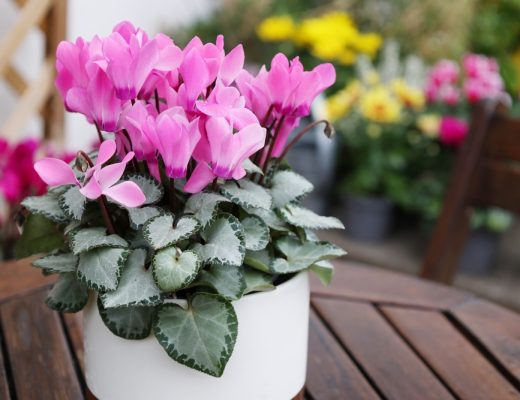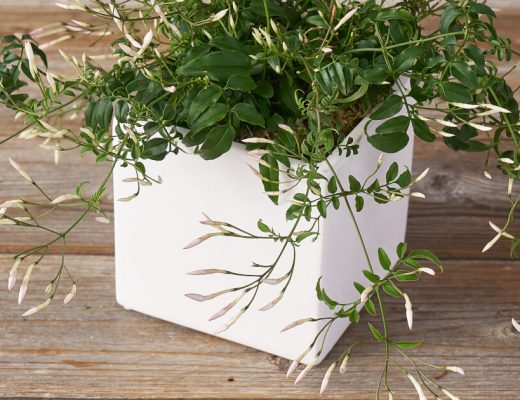Healing flowers have been used to treat everyday ailments and illnesses for thousands of years. From easing the symptoms of a chest cold to providing relief from insomnia, using flowers for healing can help bring peace to the mind, body, and spirit.
While you should always consult with a professional herbalist before starting new medical treatments, learning about flowers with healing properties can help empower you to take care of yourself. If nothing else, it will make you realize the many powers that flowers possess.
Healing Flowers and Their Uses
Did you know that some flowers have the power to heal you? Healing flowers have been used for centuries to help fight off a variety of common ailments as well as help treat chronic issues like stress, insomnia, and high blood pressure. Check out these ten medicinal flowers that are more than just a pretty object to enjoy.
1. Roses: For Heart Health and Inflammation
Roses have strong anti-inflammatory properties that can prove helpful for treating both external ailments like cuts and burns as well as internal problems like upset stomach and body aches.
Both rose petals and rose hips (the rose fruit) are also high in vitamin C and a suite of antioxidants. You can try using them to create a syrup or tincture that you can then use for colds and cough relief.
2. Lavender: For Improving Relaxation
Yes, there’s more to this flower than the amazing aroma! In an age when everything seems to be go, go, go, lavender helps us relax. Lavender is also commonly used to relieve stress and help improve sleep, either as an essential oil or tea.
3. Evening Primrose: For Skin Conditions and Stress Relief
While all parts of the evening primrose plants have healing properties, the plant is primarily cultivated for its oil-rich seeds. These seeds contain an essential fatty soil known as gamma-linolenic acid (GLA). Since GLA is an anti-inflammatory, people use it to help with conditions ranging from eczema to arthritis.
The plant is known for being especially helpful for dealing with irritability and mood swings that can often be a part of PMS.
4. St. John’s Wort: For Improved Mental Health
St. John’s wort has been used for decades to treat mental health concerns such as depression. Today, many people still use the herb as a tincture or dietary supplement to improve their mental health.
However, combining this herb doesn’t work well with many prescription medications. So before you use St. John’s wort to fight depression, make sure to do your research.
5. Jasmine: For Liver Issues and Abdominal Pain
Over the years, people have used jasmine as a natural pain reliever for liver issues ranging from hepatitis to liver scarring. Some people also find it helpful to relieve the symptoms of diarrhea as well as to improve mental alertness.
6. Marigold: For Cuts and Abrasions
Marigold is a cheerful little flower that is great for all sorts of skin ailments. By incorporating it into a salve made from beeswax and a plant-based oil, you can moisturize your skin as you apply calendula’s healing properties.
Calendula flowers are members of the marigold family that are specifically helpful for burns and scrapes, as they encourage healing and discourage scarring. Plus, this edible flower makes a great adornment for salads and cakes!
7. Hawthorne: For Heart Health
A member of the rose family, hawthorne is prized for its healing properties. Both the leaves, flowers, and fruit contain flavonoids which act as antioxidants. While these compounds may benefit various parts of the body, they are partially heralded for their ability to improve circulation, lower blood pressure, and improve heart health.
8. Passionflower: For Improved Sleep
Perhaps one of the most unique-looking flowers out there, passionflower is also a helpful flower to have around if you’re looking to manage stress. It is used to help relieve tension and anxiety, as well as improve sleep. And since it is native to parts of the Eastern United States, you may be able to find it growing just outside your home!
9. Echinacea: For Increased Immunity
Also known as coneflower, echinacea is also one of the first medicinal herbs people try out. And that’s no surprise, considering it can help ward off ailments like the common cold and flu. You can use echinacea as a tea, supplement, or tincture.
10. Chamomile: For Relaxation and Digestion
If you’ve ever sipped on a mug of sleepy time tea, you’ve benefited from chamomile. This cute little flower helps our bodies and minds unwind and relax, which may help improve sleep. A nice cup of chamomile tea can also help soothe the stomach, especially after a large or rich meal.
11. Red Clover: For Respiratory Health
While red clover is often found as a weed and animal forage, that doesn’t make its healing properties any less powerful! Red clover flowers are great for issues like coughs and bronchitis, since they help loosen mucus and also have compounds that help with muscle spasms.
How to Use Medicinal Flowers
Medicinal flowers can be used in a variety of ways for healing and soothing. One of the best ways to make use of the healing power of plants is to create a tea. But there are also other ways you can use healing flowers every day.
Make a Sachet
Herbal sachets make use of aromatic herbs and flowers and provide an aromatherapy experience. You can place sachets under your pillow, in drawers, in your car, or even at your desk. To make a sachet, get a linen or open-weave fabric bag from the craft store. Fill the bag with dried herbs and medicinal flowers and add a couple of drops of your favorite flower essential oil, then tightly close the bag. When you want to release the scent, simply rub the bag.
Make a Flower Tincture
A tincture is a concentrated herbal extract that uses alcohol as a solvent. When it comes time to take a tincture, you can mix a few drops into your favorite beverage or place the tincture right on your tongue.
While making tinctures may sound like an overwhelming process, it’s actually quite simple!
To start, grind or chop up the fresh or dried flower or herb of your choice. Next, fill a mason jar with the herbs while leaving the top inch empty. Then fill the rest of the jar with vodka, being sure to completely cover the plants.
This mixture should sit for about six to eight weeks. For a full tutorial, check out the Mountain Rose Herbs blog.
Mix Up a Floral Simple Syrup
Another way to utilize these healing flowers is to make a simple syrup! While this method may not make all the beneficial compounds available, it sure is delicious.
Begin by boiling two cups of water on the stove. Once the water has come to a boil, add two cups of sugar, and a few handfuls of your favorite flower or herb. Stir until the sugar is dissolved then allow to steep for at least 30 minutes. Drain your flowers and then use the syrup in cocktails, seltzer water, or any other way you please.
A Brief History of Healing Plants
Herbalism, or the use of plants and flowers for healing and medicine, can be traced back as early as 3000 B.C. in Shen Ning’s Pen Ts’ao. This list of medicinal herbs is the oldest known in existence and contains Chinese herbal remedies to combat health problems of the past and present. Through the ages, herbalism has been used by civilizations to heal, prevent, and ease the symptoms of major illnesses and those as simple as the common cold.
When the printing press was invented in the middle of the 15th century, herbalism became more accessible to the medical community. Because herbalism utilized plants that were often easily available, people who could obtain and read printed herbal guides could use them as a guide to find relief.
Today, many of the traditional uses for healing plants and medicinal flowers are the same and can be used for everyday ailments. While anyone can start experimenting with medicinal flowers and plants, it’s important to remember improper use of these natural remedies can cause harm. Therefore, you may want to seek out guidance from a certified herbalist.
Mental Health Benefits of Flowers
Outside of ingesting or smelling flowers, just seeing a beautiful Bouq of fresh flowers can do wonders for your mental health and creativity. Whether you want to beautify your home or office, we have a variety of seasonal flowers that are sure to make you smile every time you see them–happiness guaranteed.
If you’re looking to order flowers online for delivery, The Bouqs Co. offers an extensive selection of beautiful and relaxing bouquets to choose from. Give the gift of healing flowers with only $15 delivery nationwide for non-subscribers.
Shop All



